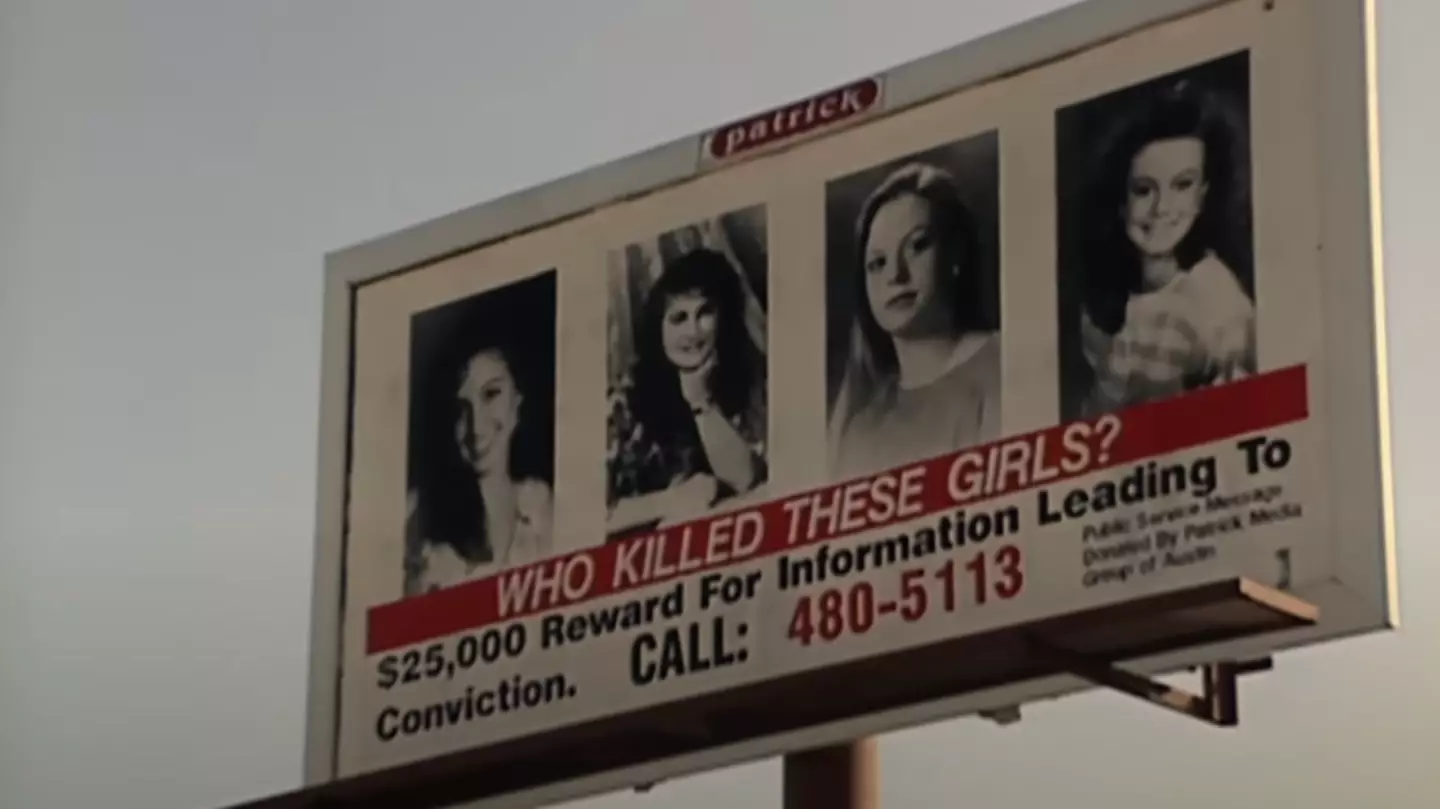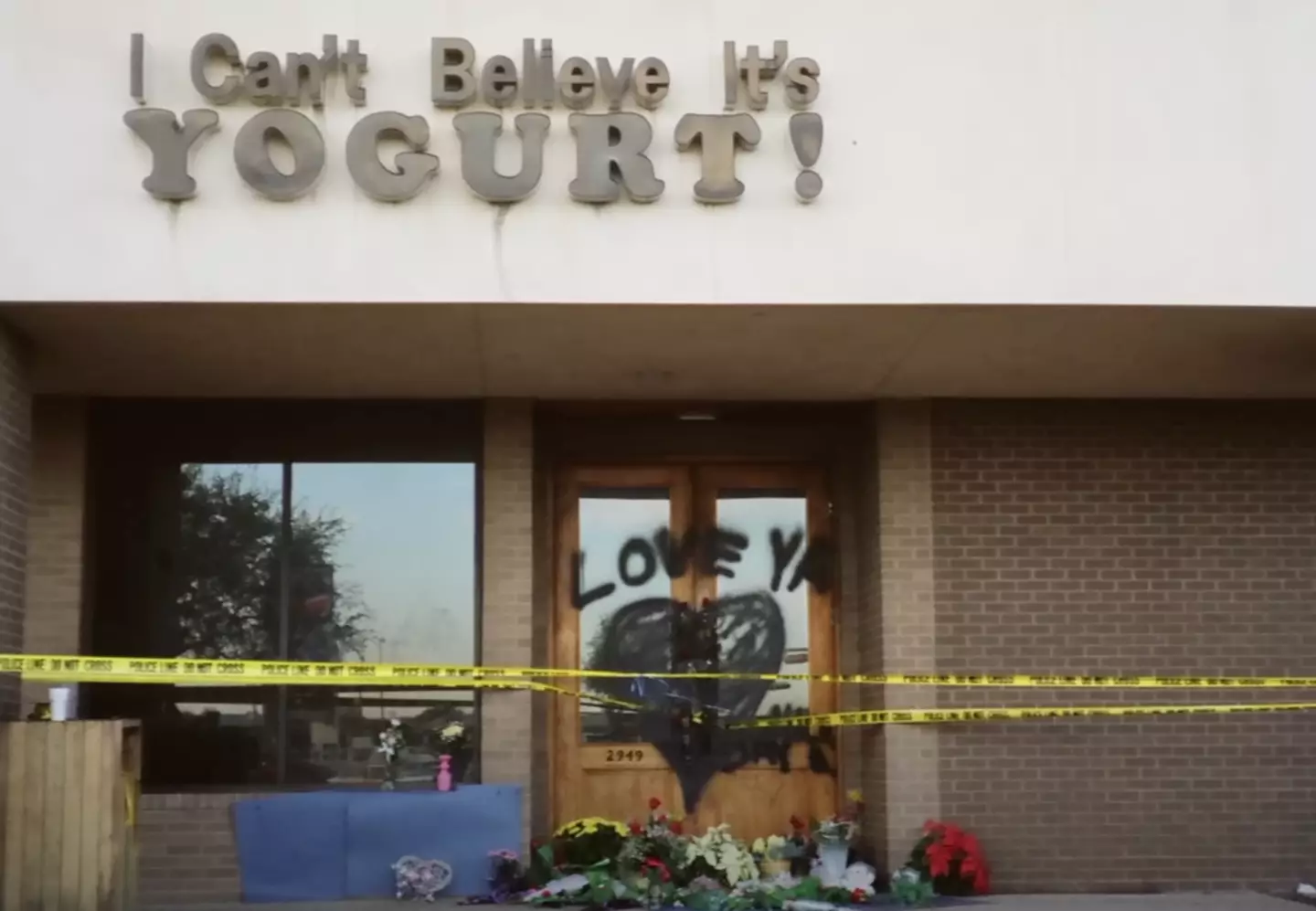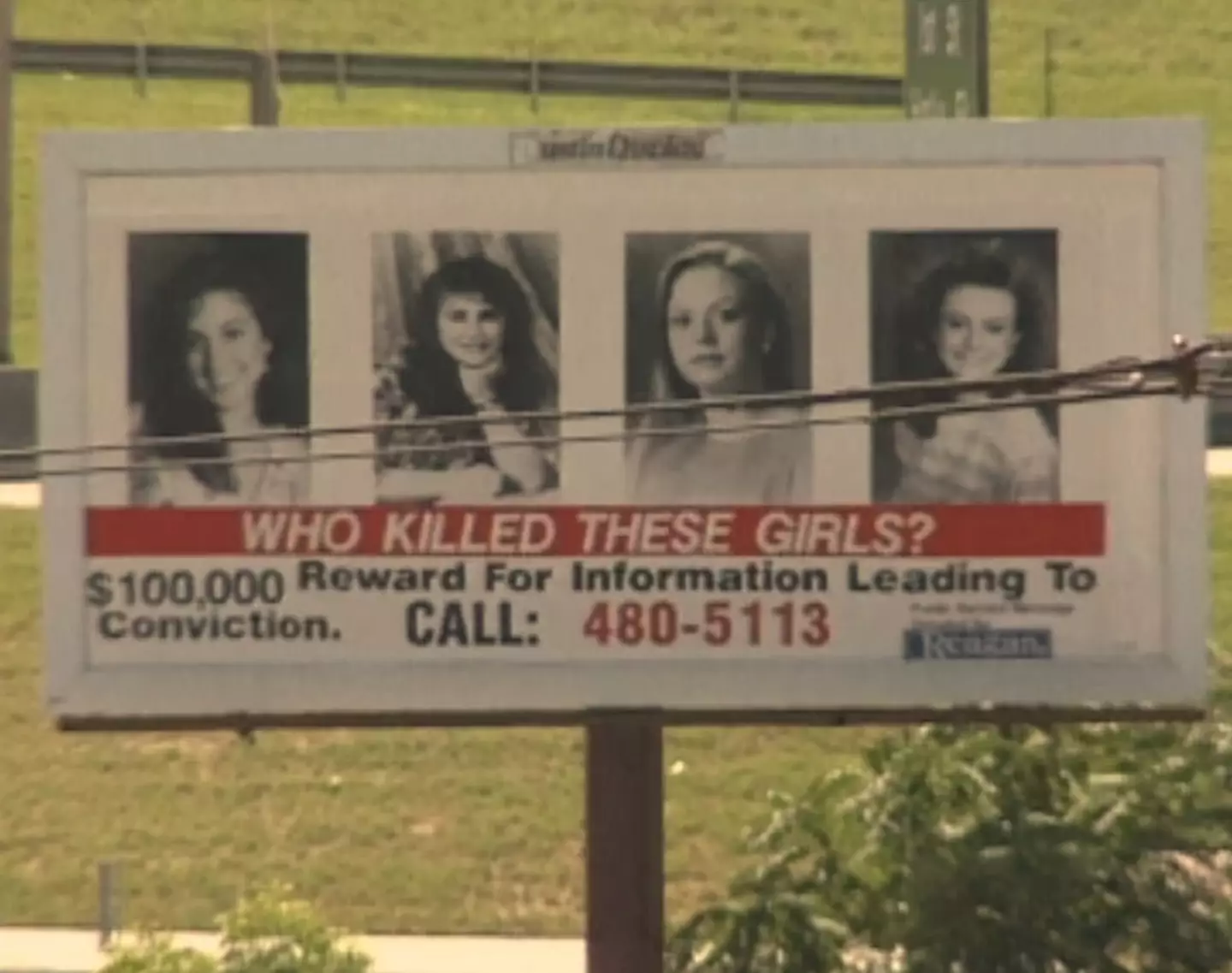
Topics: True Crime, HBO, Crime, TV And Film, News, US News, World News, Documentaries

Topics: True Crime, HBO, Crime, TV And Film, News, US News, World News, Documentaries
On a quiet night in Austin, Texas in 1991, four teenage girls were brutally killed in a yogurt shop - and the case remains unsolved to this day, with their murderer still walking free.
However, that could all be about to change, as the detective working on the 34-year-old cold case has cited 'forensic technology' and a new documentary spreading awareness as reasons he's 'confident' it can be solved.
For those who are unfamiliar with the story, the horrific crimes that rocked the then-small American city have been turned into a HBO true crime doc miniseries titled The Yogurt Shop Murders.
The series walks viewers through the night that Eliza Thomas, 17, Amy Ayers, 13, and sisters Jennifer Harbison, 17, and Sarah Harbison, 15, were shot and killed at an I Can't Believe It's Yogurt! store in North Austin.
Advert

Jennifer and Eliza were closing up as employees at the store and Jennifer's younger sister Sarah and her friend Amy were there to get a ride home after they'd been to a nearby mall.
All four were found dead, with three of the girls gagged and bound with their own underwear, and the shop had been set on fire in what investigators think was an attempt to destroy any evidence.
Any potential fingerprints or DNA evidence was scorched by the blazing fire and drenched by the hoses firefighters used to extinguish it.
The horrific crime, its effect on the parents and families, and the decades-long search for answers are all explored in the docuseries, which Detective Dan Jackson says 'could be the break' for answers the case needs.
One of the most harrowing moments in the series saw the yogurt shop's owner, Reese Price, recalling the moment she had to identify the girls' bodies, to save their loved ones from the trauma of doing so.
She gut-wrenchingly explained: “There wasn’t anything there to identify. They didn’t have faces. There was no clothing. Fire is very destructive. It’s not forgiving.”
The local community was devastated by the murders and billboards were plastered around the town with their faces, alongside the slogan: "Who killed these girls?"
Despite the lack of evidence, there were suspects that were explored in the documentary, including a group of local boys, two of which were initially found guilty but their convictions were later overturned.
Robert Springsteen was handed a death sentence in 2001 for killing Ayers, while Michael Scott was sentenced to life for her death the following year.
However, they were later freed as DNA analysis of evidence from the crime scene did not match either of them and they had 'not been adequately allowed to cross examine each other'.
Detective Jackson took over the case in 2022 on his first day with the Austin Police Department’s cold case unit and wants to reassure the public that even three decades later, hope is not lost.
In an interview with USA Today earlier this year, he said: "One of the things that we want the public to know is that this case is active. It's constantly worked on.
"If I didn't think I could solve it, then why get up every day?” he continued, "I think that with new technology, new information that we have − that I can't go into − even since I've taken the case over, the ability to do more with less when it comes to forensics is light-years ahead than it was a few years ago.

"When I started, we needed a certain amount (of DNA). We weren't even close to it, but that amount that you need is so much less now. I am confident that I will solve this.”
The detective also hopes the new documentary could be a breaking point and push someone who knows what happened to come forward with information.
He explained: “Somebody out there knows something. That's one of the things with cold cases. ... You do get people over time that, for whatever reason, may not have been willing to come forward years ago that now feel more comfortable.
"Or they thought it was something small and didn’t ever say anything, and they’re like 'Well, maybe I should call in this time and mention it. Who knows? It could be the break we need."
If you have any information about the case, visit austincrimestoppers.org or send an email to [email protected].